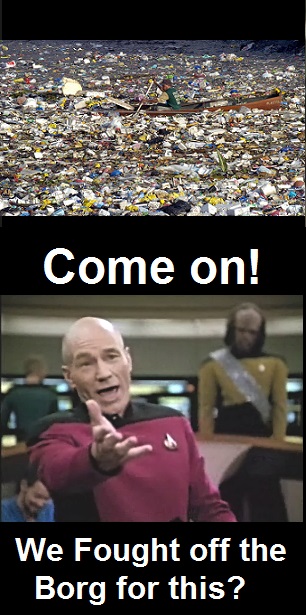We all have the best intentions.
Once we’re educated, that is.
First, we learn about plastic, and then about the meat industry, and finally we learn about pollution and water consumption. We learn that in 30 years, there might not be enough water for the 9 to 11 billion people that will share this little rock with us. We begin to understand that making our environment sick makes us sick, and who wants that? We all know we need to take care of this home.
But then we get busy with life and it’s easy to ignore what we know in favor of what’s easier for our lives.
(I say ignore and not forget, because once we educate ourselves, we know exactly what that Starbucks take-out cup is doing to the planet, and we get one anyway because hey, convenience.)
We’ve got families, jobs, travel plans, lunch dates, house cleaning, pets…you name it, there are a billion reasons why life gets in the way of making the right choices.
So, while it would be amazing if everyone jumped fully into living a completely eco lifestyle, the reality is that most of us don’t.
Crash diets fail for the same reason—too much change at once will send us scurrying back to our old, wasteful ways. Forming habits is hard. To make it stick, we need to start small. We need to ease our way into a different way of living.
So, to start, do these nine things—they’re all simple and totally doable for the average person or family.
1. Take the bag off your lawnmower.
This keeps grass clippings out of landfills and the clippings actually help keep your lawn healthy anyway. And if you water your lawn, just, no. If it’s dry where you are, consider a vegetable garden instead (and make the water worth it) or simply realize that a lush looking lawn is not more important than your future drinking water supply.
2. Reusable bags.
This one is so simple. Get yourself some good, sturdy reusable bags for shopping. Pro tip: keep them in your car. You can even find some really sturdy shopping totes for heavier items. And get this, I love using my reusable bags. They don’t rip and tear, they hold a ton of stuff, and their handles are much easier on the hands.
3. Paper Q-tips, not plastic.
You know that little stick between the cotton swab ends we use to clean our ears? Buy the ones made of paper instead of plastic. Boom. Done. Easy.
4. Add a “no junk mail” sign to your mailbox.
It seems absurd that companies still send out paper junk mail! The less we all are willing to receive junk mail, the less companies will want to produce and send it out. It’s all about the cash for them, so let’s make it too expensive to bother.
5. Go meatless sometimes.
When the rest of your family isn’t eager to skip the meat, but you know how good it is for our health and planet, here are some recipes that I personally endorse to be family friendly, tasty, and actually doable:
For “B” LT sandwiches use this recipe for the bacon and try a vegan mayo.
A bowl of chili to accompany the sandwich.
For dessert, have some cookies.
Voila, there’s your next meal all planned out. Going meatless doesn’t have to be painful.
6. Parenting.
When we educate our children and lead by example, they’re more likely to continue those healthy-earth practices because while adults may struggle to change old, bad habits, for children, it will be the norm.
7. Cleaning stuff.
Vinegar. Lemon. Baking soda. It’s possible to replace many of our cleaning products with items that are more natural and can be purchased in bulk (to reduce packaging). If you absolutely must have nice scents, pick up some essential oils like orange and lavender. (Be careful with essential oils if you have pets.)
8. Check the settings for brightness on your television.
This is an energy suck—most televisions are set in the factory to be brighter than normal for display purposes in the show room. We don’t need the picture to be that bright. Use settings like “standard, cinema, or movie” instead of “dynamic, vivid.” Depending on your viewing habits, you could save a bunch of energy this way, and money too—roughly $40 to $80 per year for an average household.
9. Replace your paper towels with a bucket of rags under the sink.
Old towels and clothing can be cut up into rags that you can wash and re-use. If the job is really gross, you can throw the rag away—which is still way less waste than constant paper towel use. Use a regular kitchen dish cloth for the rest of the counter and table cleaning.



Comments are closed.
Read 2 comments and reply